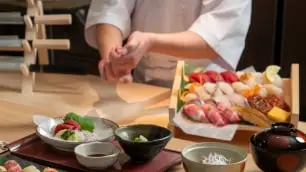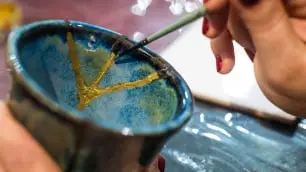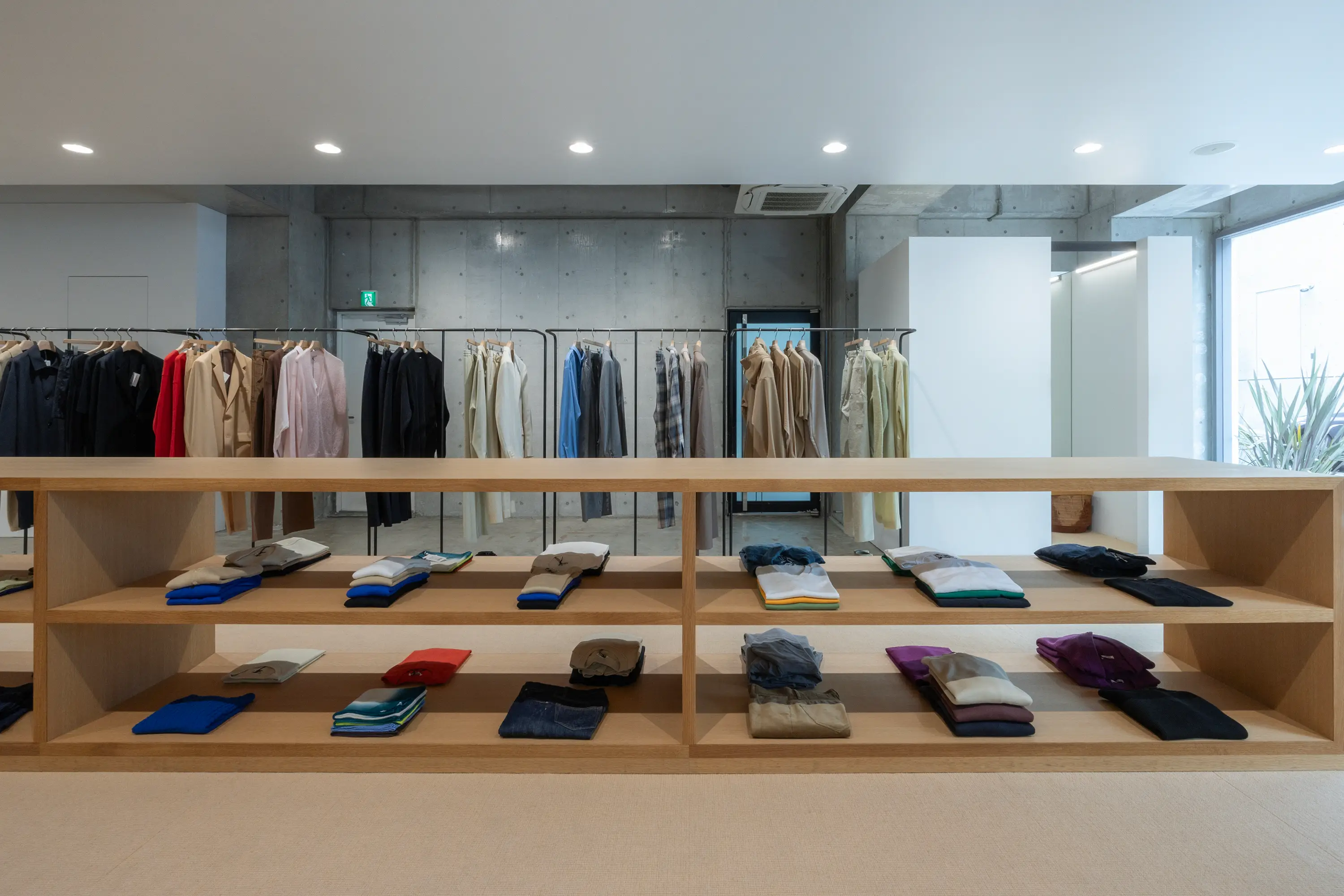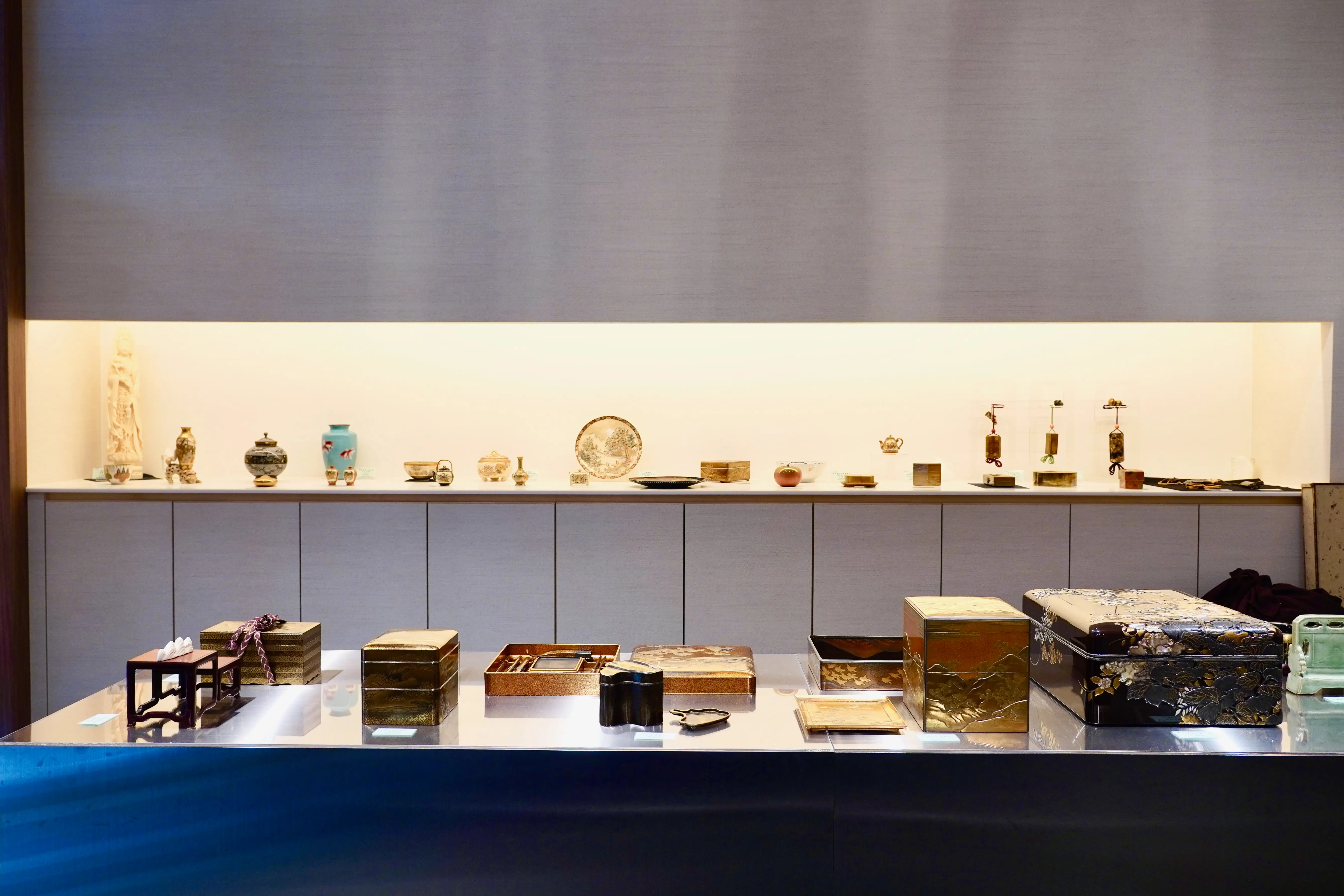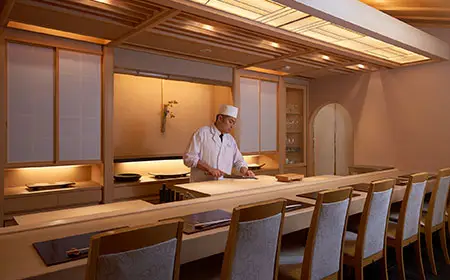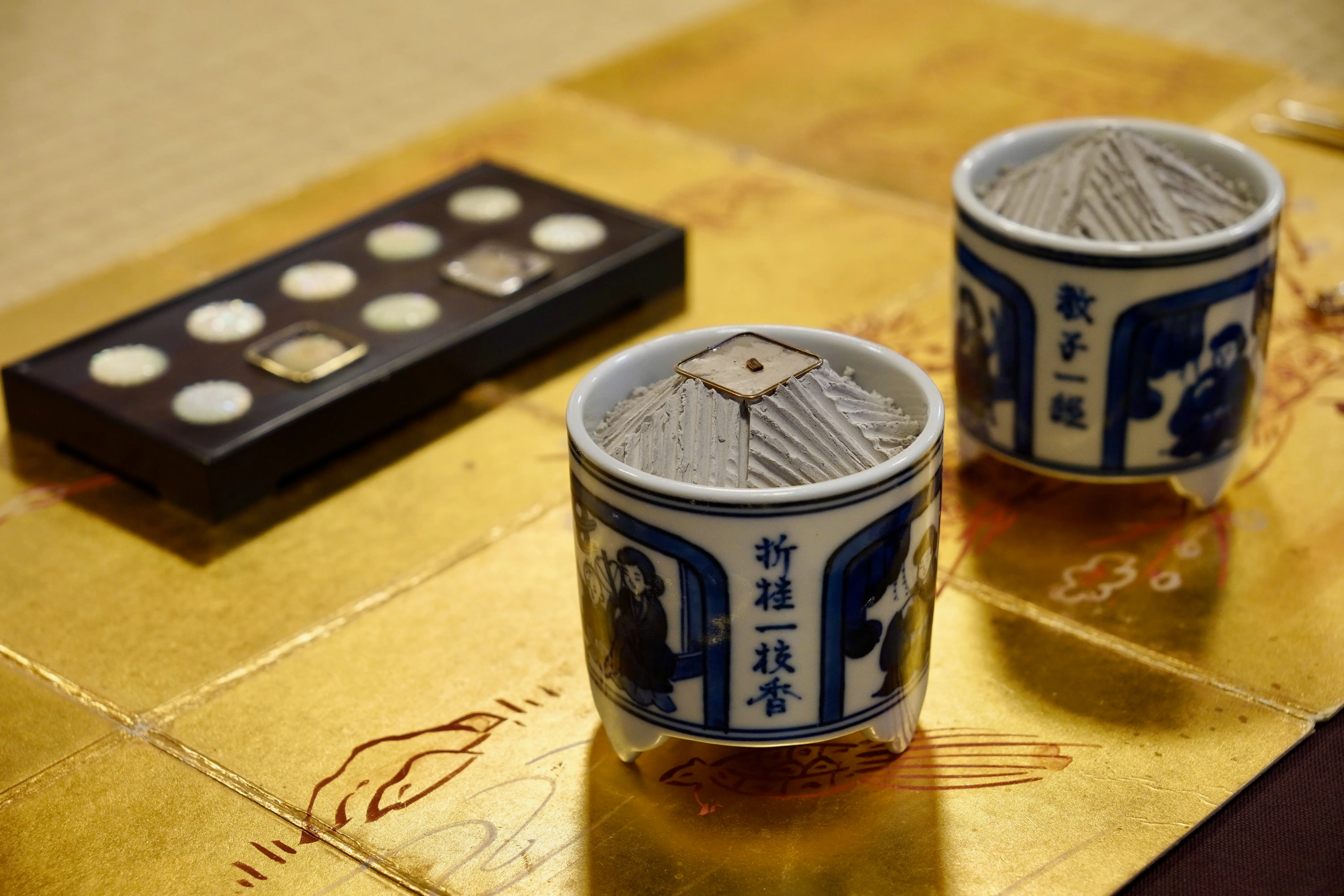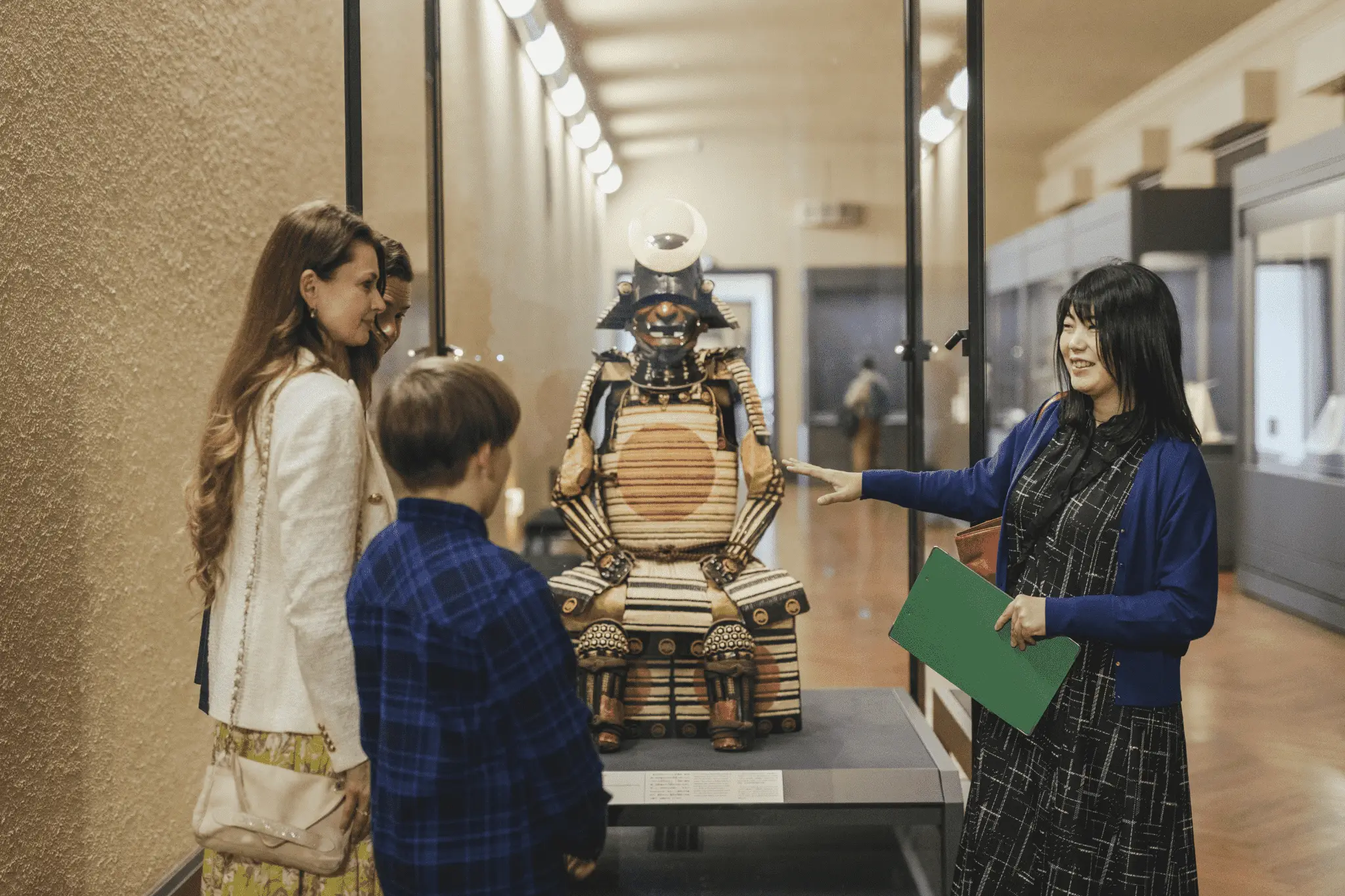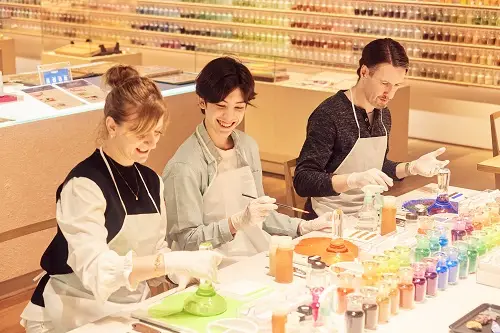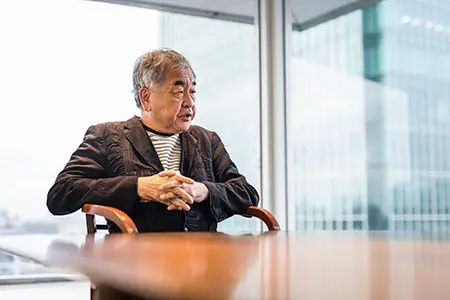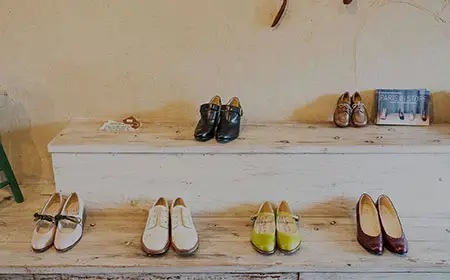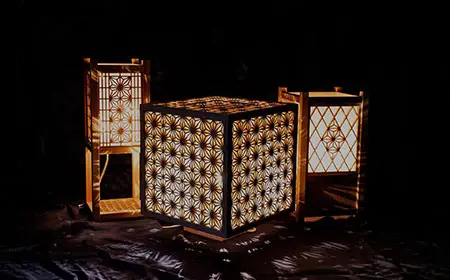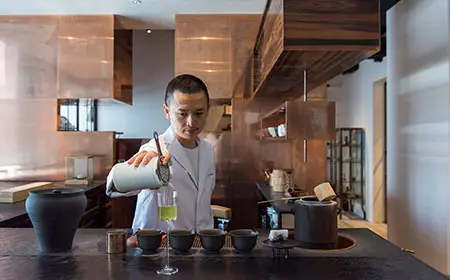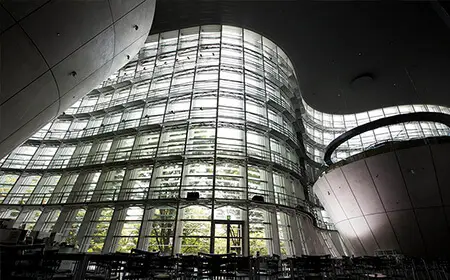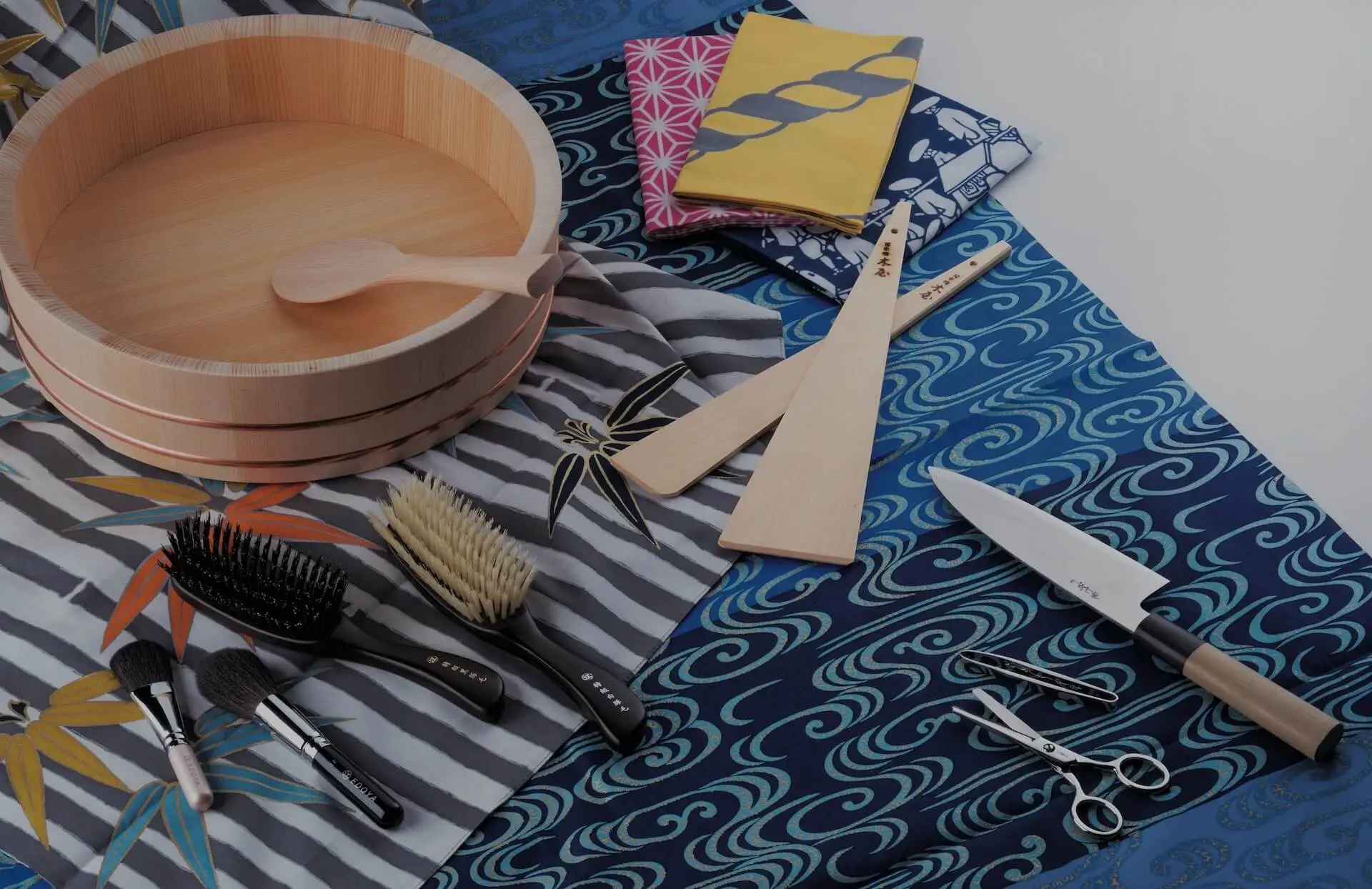
CUSTOMIZING TRADITIONAL CRAFTS
Home to many unique craft traditions developed in its days as a castle town during the Edo period (1603–1868), Tokyo offers refined souvenirs and gifts you won’t see anywhere else.
Commerce and popular arts proliferated when Japan’s capital was established in what is now known as Tokyo. Merchants established themselves in the city and their stores still flourish here today. Performing arts such as Noh and Kabuki theater as well as the Japanese tea ceremony ensured that these traditional crafts remain in demand. From Edo Sarasa cotton fabric to Edo Kiriko cut glassware, a wealth of options exist today for your shopping and gifting pleasure.
Kiya Main Store(Nihonbashi)
The joy of finding the right kitchen tool
This historical commercial enter of Tokyo, Nihonbashi has always been a lively place, attracting many craftsmen to serve people’s everyday needs. Kiya, a purveyor of kitchen tools, began as an ironware wholesaler when it opened a shop here more than 230 years ago. While the store is now housed in the modern COREDO Muromachi 1 commercial complex, the traditional skills of Kiya’s craftsmen remain unchanged. Kiya sells products that are essential for Japanese cuisine, from knives to hammered metal pans and planes for shaving dried and cured katsuo bonito. The shop also offers a popular engraving service for knives so customers can personalize their purchases.
Kiya Main Store
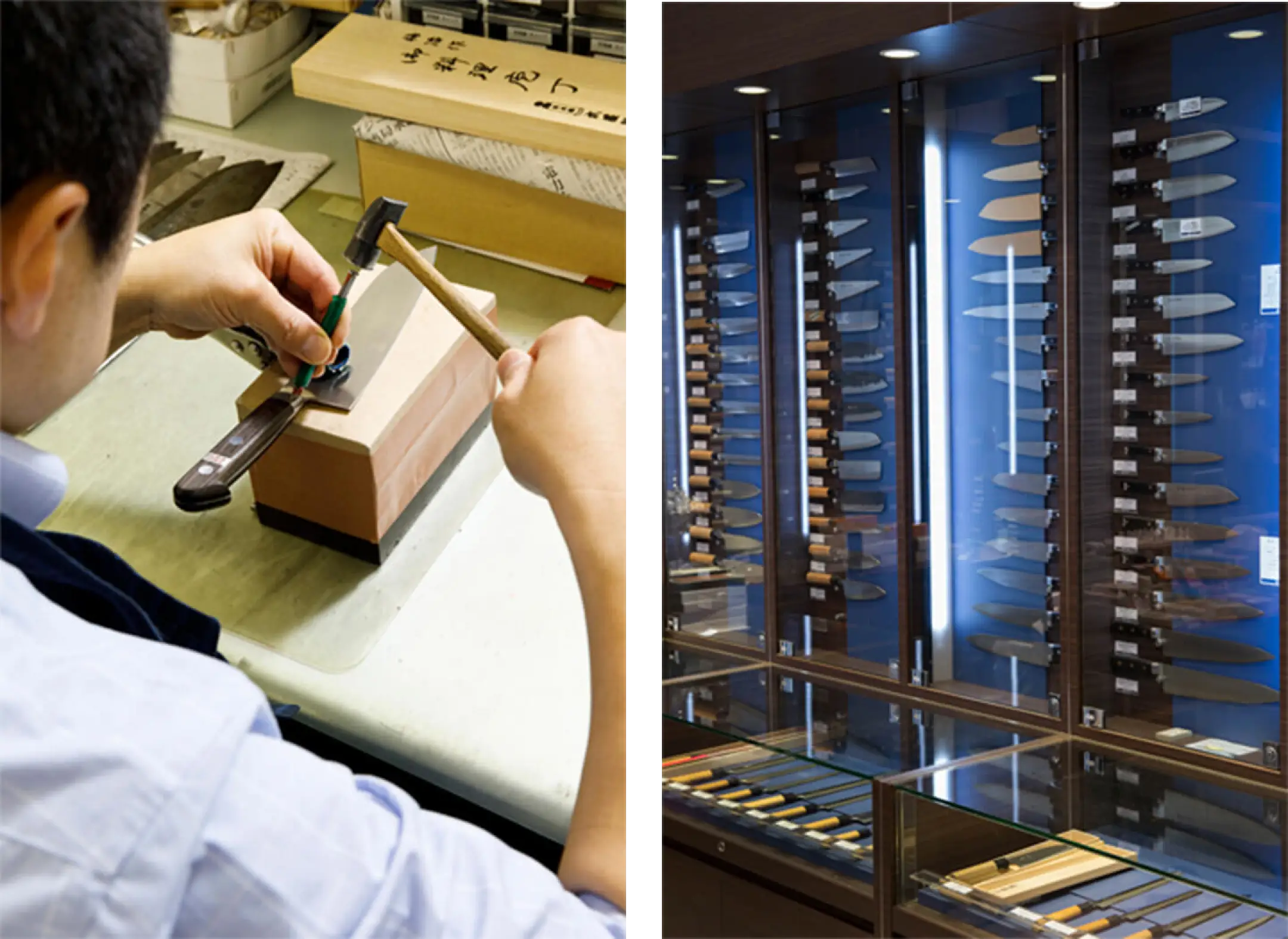
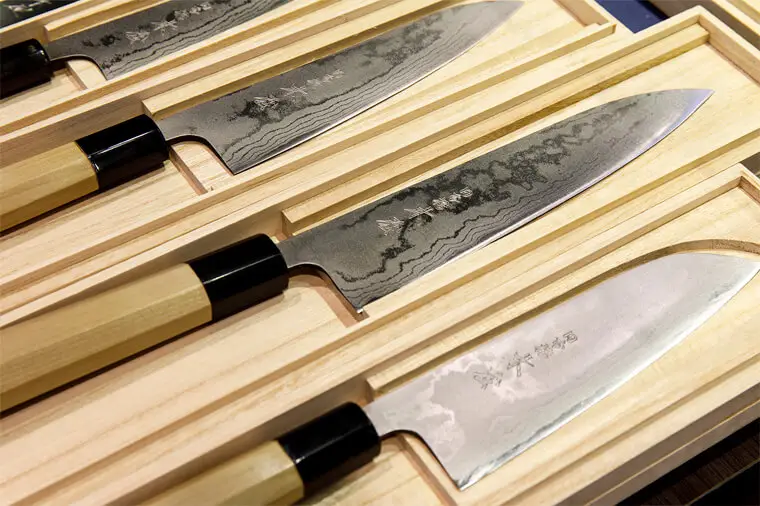 Kiya carries Japanese and Western knives for both professional and home use. Those featuring wavelike patterns on the blade surface—a result of the forging process—are especially popular. The store provides complimentary engraving of names or initials. Engraving takes one week; overseas shipping is available.
Kiya carries Japanese and Western knives for both professional and home use. Those featuring wavelike patterns on the blade surface—a result of the forging process—are especially popular. The store provides complimentary engraving of names or initials. Engraving takes one week; overseas shipping is available.
Iwai Tsuzuraten (Nihonbashi)
Centuries-old ingenuity lives on
Tsuzura boxes are made by weaving bamboo strips, covering the resulting form in washi paper, staining it with persimmon tannin, and then coating the whole with lacquer. These light and durable containers offer excellent ventilation while protecting the contents from insects. Traditionally used to store kimono and other items, they were often included in a bride’s trousseau; in modern Tokyo they are popular as décor accents. Iwai Tsuzuraten, the only shop left in the greater Tokyo area that specializes in this product, was founded in 1861 in Ningyo-cho, a district where kimono dealers once served upper-class samurai households. It is now led by its fourth-generation proprietor, Ryoichi Iwai, a consummate craftsman in whom the skills of his predecessors lives on. If your timing is lucky, you’ll be able to witness Iwai at his workstation near the shop entrance.
Tsuzura come in a variety of sizes, ranging from small boxes suitable for storing letters to medium- and full-sized containers that can be customized with a name or family crest. Iwai says he gets the greatest pleasure from serving third- or fourth-generation customers who come in to acquire new works or request repairs to beloved ones passed down through their family.
Iwai Tsuzuraten(Japanese Website)
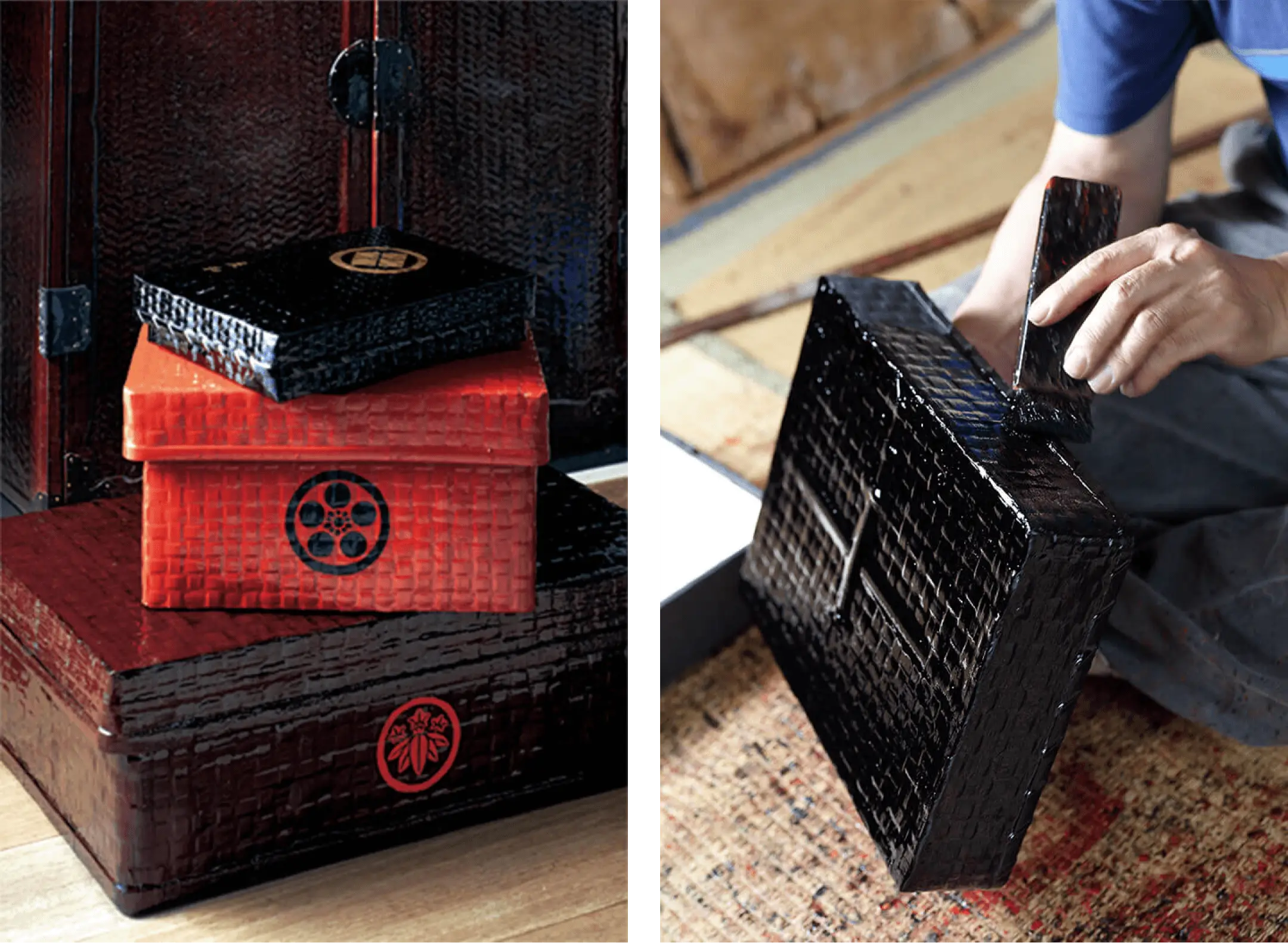 Japanese language only. There is a three-month waiting list for having a name or crest added; payment by bank transfer. Overseas shipping is not available.
Japanese language only. There is a three-month waiting list for having a name or crest added; payment by bank transfer. Overseas shipping is not available.More unique crafts
The Ginza and Nihonbashi areas brim with shops like these below that offer beautiful Edo-period crafts to take home as a memento of your Tokyo visit.
Ibasen
Founded in 1590, the store, which once published ukiyo-e woodblock prints, is now well known as a specialist in handheld paper fans.
Ibasen
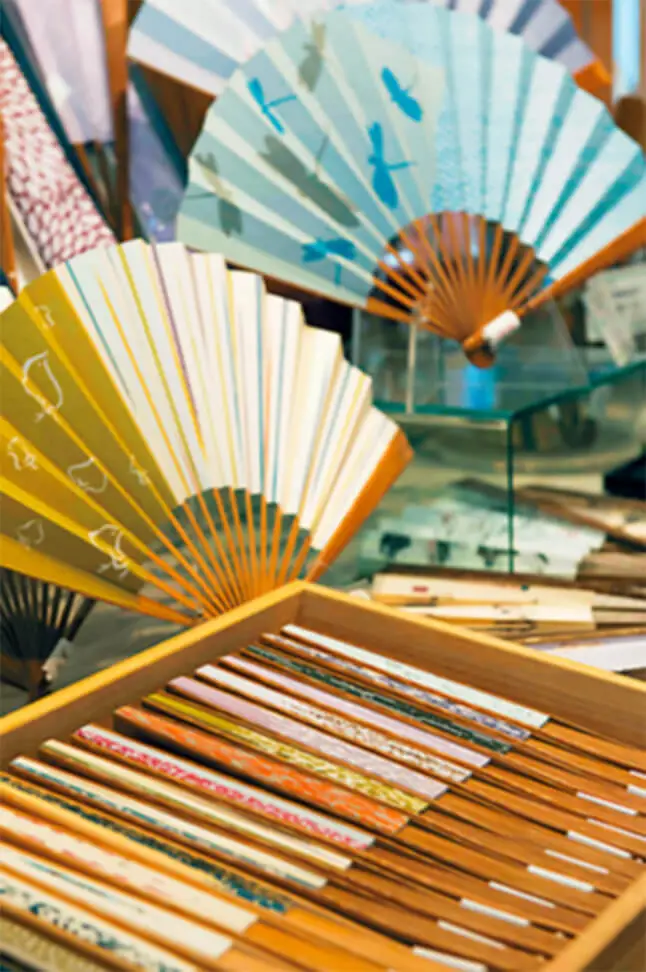
Chikusen
A specialist in resist stencil dyeing, Chikusen offers kimono fabrics and other hand-dyed items like tenugui and furoshiki cloths.
Chikusen
Natsuno
Visit here to find a wide selection of durable, easy-to-use chopsticks made from rare materials like ebony.
Natsuno
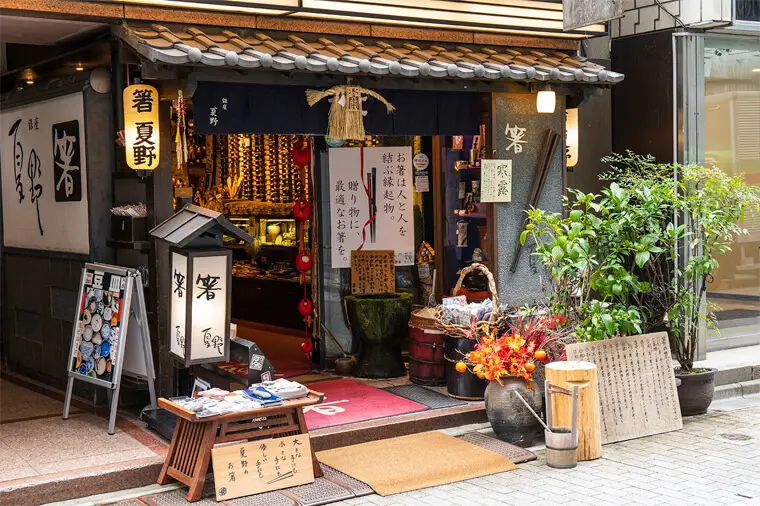 ©Ginza Natsuno
©Ginza Natsuno





